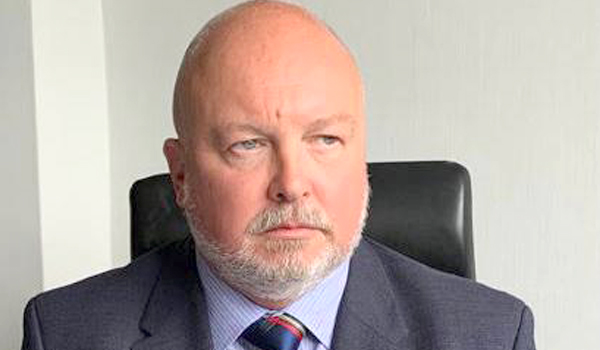Budget shortfall could see PSNI lose 900 officers
The Police Service for Northern Ireland (PSNI) has warned it could lose 900 officers over the next three years due to a budget shortfall.
PSNI Chief Operating Officer Pamela McCreedy told the Northern Ireland Policing Board (NIPB) that the budgetary settlement currently projects an operating shortfall of £180 million over the next three years.
Gerry Kelly, chair of the NIPB’s Resources Committee, said members were told “a reduction in headcount” would be the most likely way to achieve savings.
Mr Kelly said: “With staff operating costs representing around 79 per cent of the PSNI’s current budgetary provision, members were told that the potential for achieving savings of this level presents serious challenge and would likely mean a reduction in headcount.
“Committee members expressed deep concern at the potential scenario of a reduction in officer levels of 900 over the next hree years to meet the shortfall.
“With discussions ongoing around the draft settlement, the committee has asked for a further paper on the range of scenarios being considered by the PSNI to be brought to the January 2022 committee meeting for further consideration and discussion.”
The Police Federation for Northern Ireland (PFNI) condemned the budget shortfall and prospect of fewer officers as “scandalous”.
In his most recent Accountability Report to the NIPB, PSNI Chief Constable Simon Byrne warned that “officer numbers will fall” if sufficient funding is not secured in the new police budget.
He told the board that while this year’s recruitment campaign had been “encouraging”, meeting a target of 400 new officers “will not be possible” if there is a budget shortfall.
“The impact will be felt on service delivery, resilience and modernisation,” Mr Byrne told the NIPB.
PFNI chair Mark Lindsay said: “We already have officers stretched beyond capacity, but additionally we’re also picking up the slack in other public services. For example, last year we assisted the Ambulance Service when they were unable to provide emergency ambulances and, on a daily basis, stepped up to help people who are vulnerable and in social care.
“If these cuts are implemented, it will undoubtably impact on the ability to tackle crime and protect our communities.
“A savage cut of up to 1,100 in the number of officers will undo all the good work that has been done over the past 20 years. It will impact severely on neighbourhood policing, which has been the ethos of policing, and also on our ability to deal with the full range of serious crime.
“This is not only a disaster for policing but also for our entire community. You will see fewer officers on the streets and longer response times to incidents and calls for help.”
He added: “The other public services such as health and social care will also feel the effect, as fewer officers will be able to assist where they fall short. Functions we carry out on behalf of other public services will all disappear and that could have appalling consequences for the vulnerable in our society.
“Ministers need to look at their priorities as to make such catastrophic cuts to policing puts our entire society at risk. They need to remember that policing is not just the emergency service of last resort but now more commonly that of first resort.
“Resources have to be found to avert a disaster. Instead of staring into a situation where numbers could be cut to a critically low level of below 6,000, the Executive should be sticking to its commitment in ‘New Decade New Approach’ of building up the service to 7,500.”
Mr Lindsay has already warned that the PSNI “simply doesn’t have the numbers” to enforce any surge in new Covid-19 regulations.
The PFNI says the service is already under resourced and would not be able to cope with any major spike in demand for officers to intervene to deal with Covid breaches, on top of the many other roles they now carry out.
Mr Lindsay, said: “We simply don’t have the numbers to be everywhere. Re-directing officers from other duties isn’t realistic and anyone who thinks the police can shoulder the burden as sole enforcement organisation is either delusional or not serious about protecting society.
“Officers will continue to do all they can to encourage and explain and where that fails, then there will, of course, be an option of enforcement.
“But adding to the workload will mean some other areas of policing, such as calls to help vulnerable people and crime, will slip down the queue.
“Policing already shoulders much of the workload for under pressure public services and to expect us to have the capacity to deal with the major demand caused by Covid enforcement is unrealistic.”
He added: “The landscape is different to that 12 months ago, when policing demand was reduced due to lockdown. The reality now is that there is a vibrant night-time economy, coupled with high levels of ‘normal’ policing activity, which equates to absolutely no spare capacity to deal with any expected surge in enforcement over Covid.
“There is some resentment among officers over the way they are being asked to bear the weight of this additional workload, whilst already stretched to capacity.
“This cannot be a solo run by police officers. Others, too, have to share the burden to deal with the Omicron variant and the steps that are necessary to keep us all as safe as possible.”


